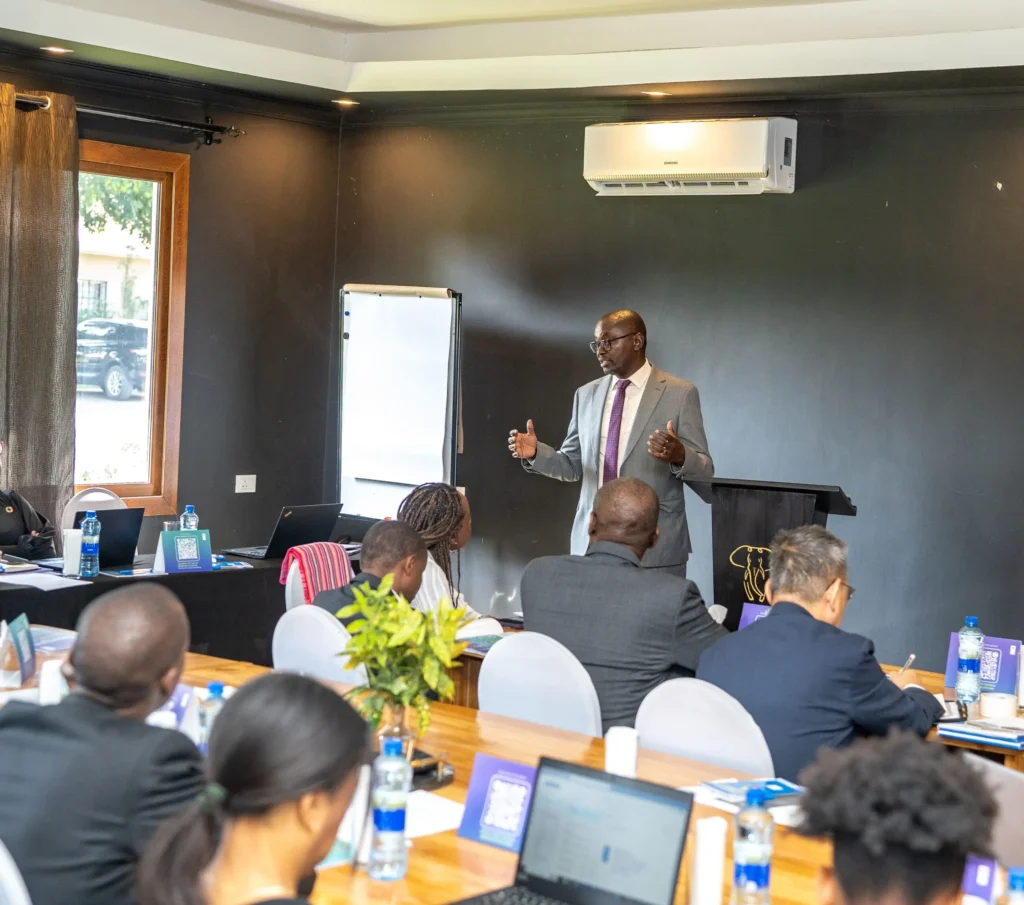Blog
UNDP and AfriCatalyst host capacity building workshop in Tanzania to support ongoing efforts to secure fairer credit ratings
Dodoma, Tanzania, 10 July 2024 – With only eight years remaining to meet the 2030 Sustainable Development Goals deadline, African countries have an opportunity to secure favourable financing terms to meet their development aspirations.
More than 20 government officials from Tanzania’s Ministry of Finance and Planning, the National Bureau of Statistics, the Central Bank, the Zanzibar President’s Office and other key government agencies convened in the capital Dodoma for a workshop focused on navigating the credit ratings process to reduce debt servicing burdens, expand fiscal space, and increase foreign capital inflows.
The workshop, part of efforts by UNDP and AfriCatalyst to empower countries with the knowledge and tools to enhance their sovereign credit ratings, complements Tanzania’s ongoing efforts to build institutional capacity in this area through expert technical support, improved data access via an online resource platform, and knowledge sharing through a proactive network of African professionals working in credit ratings.
The engagement comes months after credit rating agency Moody’s upgraded Tanzania to a B1 rating with a stable outlook, while Fitch Ratings affirmed the country with a B+ rating with a stable outlook in December 2023, solidifying Tanzania as the highest-rated sovereign in the East African region. Tanzania is four upgrades away from joining the only two-investment grade countries in Africa – Botswana and Mauritius. As a 2023 UNDP report estimated, even just one upgrade would save Tanzania $191 million in interest costs and facilitate the inflow of $447 million in investments. Economic growth is expected to reach 6.1% in 2024, making Tanzania the 15th fastest growing economy globally (and 9th fastest in Africa).

Speaking at the workshop’s opening, Shigeki Komatsubara, UNDP Resident Representative in Tanzania, commended Tanzania for achieving this upgrade amid downward pressures faced by many African countries. “I congratulate the Government of Tanzania on upgrading the country’s sovereign credit ratings from B2 to B1 with a stable outlook,” said Komatsubara. “Through this initiative, UNDP is committed to ensuring African countries can benefit from better access to development finance through fairer and more objective assessments of its countries’ creditworthiness”.
Raymond Gilpin, Chief Economist at the UNDP Regional Bureau for Africa, addressed the need for available, accessible and affordable investments to bridge the $250 billion gap towards achieving the SDGs. “To improve credit ratings, countries need to enhance economic management, increase foreign reserves, and reduce exchange rate volatility, to signal stability to investors,” he stated. “Insufficient and uncoordinated data collection across many African countries often leads to subjective judgments by credit raters, which disadvantages Africa in the process”.
Over two days, participants reviewed fundamental concepts and methodologies underpinning credit rating systems and their role in development financing. In practical sessions, they used the Africa Credit Ratings Resource Platform to understand their country context and conduct country comparisons, and learned practical strategies for effective engagement with rating agencies.
“Advocating for fair credit rating conditions is critical, but addressing what’s within our influence is urgent. Knowledge-building, better organization, and reducing information asymmetry will empower governments,” emphasized Amani Mhinda, Senior Advisor at AfriCatalyst.
Participants called for improvements in the methodologies used in credit ratings systems, emphasizing the importance of transparency in modernizing the system and providing objective assessments of macroeconomic positions for African countries.
The workshop was preceded by consultations between UNDP and the Presidential Delivery Bureau (PDB) in Zanzibar, as well as the Ministries of Finance and Planning in Zanzibar and Dodoma. The pilot initiative in Tanzania is implemented with the generous financial support from the Government of Japan.
